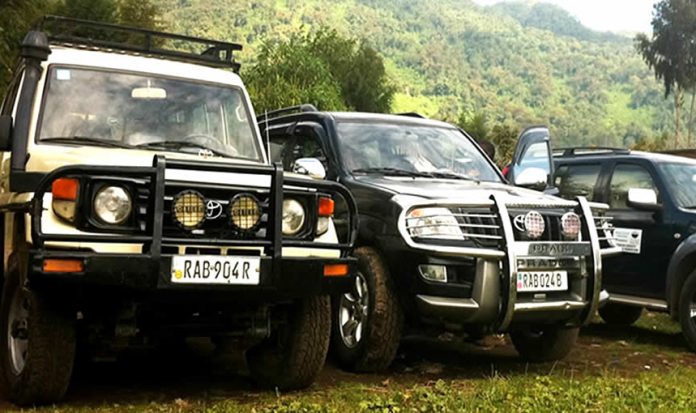Renting a car is something that many people do when they go on vacation. But most people don’t realize all the potential traps and pitfalls that can be avoided when renting a car. Having worked for a car rental company, I’ve come across lots of hacks that you can use to save time, save money, and generally make the whole process of renting a car a lot easier. Today I’m going to share 10 rental car tips with you; I guarantee there will be at least one tip you hadn’t thought of in the list!
- Book early to save
Just like airfares and accommodation, prices for rental cars usually increase as you get closer to the date of service. This is especially true around holidays such as Christmas and Easter. Because demand is so high and rental car fleets are limited, the suppliers can charge just about whatever they like and know that people will still be desperate enough to book. Booking far in advance means you’ll get the best possible rate, as well as choice of the full range of cars. - Compare, contrast, and find a deal
There are a few comparison websites are a great way to book car hire in Rwanda. Using one of these comparison sites, you can compare all the major car rental suppliers against one another on the same screen, and find the cheapest deal. There are plenty of comparison sites around, just make sure you use one that doesn’t charge any booking fee or cancellation fee so you’re not out of pocket if you happen to find a better deal later on. My favorite is probably Kigali Car Rentals because they offer a lowest price guarantee. They also send you a confirmation SMS so you don’t need to bother with paperwork when you pick up the car. - Airport rental centers cost more
Did you know that the price of rental cars at the airport is way higher than that city depot, even for the same supplier? It’s partly because airports charge the rental car suppliers a huge amount for renting the car spaces and desk space inside the terminal. They also charge customers more for the convenience. If you’re renting a car for just a day or two, it might not make much of a difference in your total bill. If you’re renting for a week, it could mean huge savings. Compare the price for airport and downtown locations to see if it’s worthwhile getting other transport from the airport to the city and picking the car up there instead. - Consider the environment
I’m not just talking for the environment’s sake, either. Choosing an economical car or hybrid can save you lots of money when it comes to refuelling. Sure, that giant Cadillac might look nice, but if you’re looking to save money then maybe a Civic would be the smarter choice. - Don’t pay in advance
Book through a supplier or comparison website that doesn’t require any payment up front. If you find a better deal somewhere else, or if something else comes up and you need to change your plans, at least you won’t be stung with a cancellation fee! It also means you can make a few bookings and choose the one that’s best for you as the date gets closer. By booking early you can lock in good prices, and just cancel the ones you don’t need before the date. - Take photos of any damage
make sure you take photos of any damage to the car before you leave the depot. If your camera has the option, mark the photos with the time and date, or upload them to somewhere online that lists the time and date. If there is a staff member available, get them to walk around the car with you, and make sure you mark any and all damage and marks on the car, no matter how small. Don’t let them tell you not to worry about the small marks. It’s better to be safe than sorry! What most people don’t know is that if you happen to return a car with damage, you’ll not only be up for the cost of repairing the damage, but also for any potential loss of rental fees while the car is off the road. That can add up to thousands of dollars! - Try different rental lengths
Suppliers often have special rates for different length rentals. As an example, I recently saw one supplier offering a special 4-day rate which was actually cheaper than their regular rate for three days. In this case it would be better to take the four day rate, and just drop the car back after three days instead. Weekly and weekend rental rates are the most common. If you only need the car for 5 or 6 days, just try comparing the price for 7 anyway; you might be pleasantly surprised. - Keep your schedule in mind
Suppliers generally charge in 24-hour blocks. If you don’t need the car until 1pm, make the booking starting at 1pm! Most search forms default to 9 or 10am, so watch out for this when you’re searching. If you book for 1pm it means you’ll have until 1pm on the day you drop it off. Also worth noting is that suppliers generally have a grace period – usually an extra 29 or 59 minutes past your drop off time before they charge an excess fee. If you think you’re going to be late dropping the car back, give the depot a call to let them know and ask for this grace period. - GPS units and baby seats can be costly
to add a GPS unit to my rental would have cost me more than actually buying a new one from a shop! So you can bring yours at home or buy one which you will resell, the same is true of baby seats. These can be costly to hire, so consider taking one with you. Many airlines will let you check baby seats in with your luggage for free or for a nominal fee. You could also buy a basic child seat once you get to your destination. Depending how long you need it, this may be a cheaper option. At the end of your trip, you can either sell or donate the car seat. - Check exclusions on where you can and can’t take the vehicle
it’s worth reading the fine print to see where you can and can’t take your rental car. Most suppliers have exclusion areas, whether it’s off-road or taking it to certain islands, on ferries, etc. You may also notice some strange clauses like a “dusk to dawn” clause. This can mean you’re not covered by insurance if you have an accident at night outside the city limits (e.g. if you hit a wild animal).










